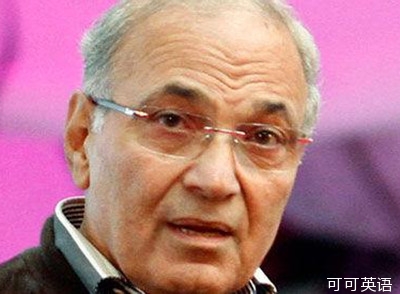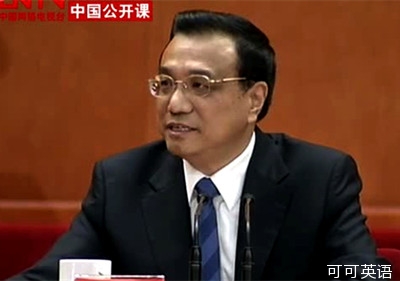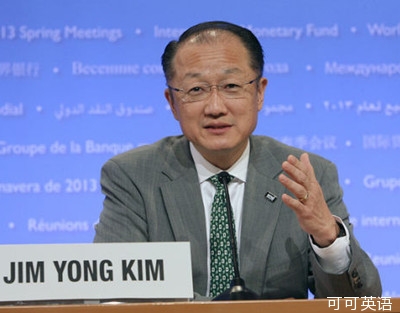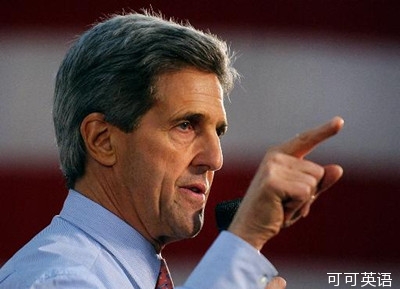Soft versus hard governance
软和硬治理
A parallel argument can be made for governance. “Hard” governance arrangements require the establishment of legal obligations and independent institutions through treaties. The UN, IMF, World Bank and the WTO typify such arrangements.
治理也有同样。“硬的”治理安排要求通过制定条约建立法律义务和独立机构。联合国、基金组织、世界银行和世界贸易组织即是这类安排。
On the positive side, this kind of hard, treaty-based architecture strengthens the credibility of member countries’ commitments and grants legal enforcement powers to institutions. However, their establishment and adaptation to changing circumstances tends to be a relatively slow-moving process, which can be a problem when the global environment or the needs of members change.
从积极的一面看,这类硬的以条约为基础的架构可提高成员国承诺的可信性,并赋予执法机构权力。然而,其建立和适应不断变化的形势往往需要一个较缓慢的过程,当全球环境或成员国的需要发生变化时,可能会是一个问题。
“Soft” governance arrangements, such as the G20 and BRIC country groupings, the FSB, or the Financial Action Task Force (FATF) have no international legal personality or obligations. As a result, they tend to be more flexible and can often be put in place more quickly. They do not, however, have treaty-based mandates or legal enforcement powers. As a result, they have a more limited ability to enforce commitments, which can pose challenges for their relevance and effectiveness over time.
“软的”治理安排,如20国集团和金砖四国集团、FSB或金融行动特别工作组(FATF )不具备国际法律地位或义务。因此,它们往往更灵活,通常可以更快地建立。但是,它们没有基于条约的授权或执法权力。结果,它们强制执行承诺的能力更有限,随着时间推移,这会给其相关性和有效性带来挑战。
Finally, there are, of course, also private sector solutions to governance challenges. One example are Collective Action Clauses (CACs) which allow a supermajority of bondholders to agree to changes in bond payments terms, with the intention of facilitating smoother debt restructuring. Another example is IFRS, an independent nonprofit foundation that promotes the harmonization of global accounting standards.
最后,当然,解决治理挑战还有私营部门解决方案。其中一个例子是“集体行动条款”,该条款允许在绝对多数债权人同意的情况下变更债券支付条款,以促进债务顺利重组。另一个例子是国际财务报告准则,这是一个独立的非营利基金会,旨在促进全球会计标准的统一。
A mosaic of solutions
各种解决方案
In sum, the global economic governance structure of the future may well be a mosaic—or ecosystem—of “hard” and “soft” elements that operate in a complementary fashion. In such a system, governance arrangements would essentially be issues- and context-driven, with choices between hard and soft governance arrangements depending on what is the most efficient and practical solution to regulate and oversee a specific matter at hand. Making such a system “smart” depends crucially on using hard or soft governance at the right time and for the right issues.
总之,未来的全球经济治理结构可能会是一种组合或生态系统,由“硬”和“软”两种元素组成。在这样的系统中,治理安排将基本上由问题和环境驱动,采用针对特定事件的规范和监督,将根据最有效和最实用的解决方案作为原则来决定选择硬的或软的治理安排。制作这样一个“智能”系统关键取决于在正确的时间和对正确的问题选择使用硬的或是软的治理。
Let’s consider three examples of how hard and soft governance have been combined:
让我们来通过三个例子来考虑如何结合使用软的和硬的治理:
First, take trade. We all prefer multilateral trade agreements over regional ones. Since the gains from trade are well recognized, the WTO dispute resolution process has real “teeth” with an ability to impose sanctions on those who violate global trade rules. Increasingly mega-regional agreements (like US-EU or TPP) are less about tariffs but about standards and non-tariff barriers. To the extent that they help set global norms that facilitate trade, they bring us closer to more global solutions and potentially reinforce (and in the future possibly become integrated with) the WTO framework.
首先,以贸易为例。相比区域贸易协定,我们都比较喜欢多边贸易协定。从贸易得到的好处显而易见,WTO的争端解决过程具备真正的“牙齿”,有能力对违反全球贸易规则的国家实施制裁。很少的大型区域协定(如美国-欧盟或TPP)是针对关税的,它们针对标准和非关税壁垒。只要它们能帮助建立国际准则,促进贸易,就会让我们更接近球性解决方案,并可能加强世界贸易组织框架(将来还可能成为WTO的一部分)。
Second, consider the balance between hard and soft governance in the euro area crisis. Arguably the hard governance came from the IMF and the ECB and soft governance from the Eurogroup. Europe’s complex governance arrangements worked well in peace time, but decision making processes were not well suited to managing crisis.
其次,在欧元区危机中考虑软硬治理之间的平衡。可以说,硬治理来自基金组织和欧洲央行,软治理来自欧洲集团。欧洲复杂的治理安排在和平时期运作良好,但其决策过程不适于管理危机。
Finally consider the areas of financial regulation. As part of its mandatory Financial Sector Assessment Program (FSAP), the IMF conducts financial stability assessments every 5 years of jurisdictions that have systemically important financial sectors. Mandatory FSAPs are a good example of hard surveillance where countries are assessed against compliance with clear global standards and stress tested against national and international spillovers. Every two years after an FSAP, the FSB does a peer review (a sort of soft governance) of follow up on FSAP recommendations as a complementary way to advance key reforms for financial stability.
最后,考虑金融监管的范畴。作为强制性金融部门评估规划(FSAP )的一部分,基金组织每5年对具有系统重要性的金融部门的管辖区进行评估。强制性金融部门评估规划是硬监督的一个很好的例子,该规划对有关成员国遵守明确国际标准的情况进行评估,并根据国内和国际溢出效应进行压力测试。金融部门评估规划之后每两年,FSB进行同行检查(是一种软治理),跟踪成员国采纳金融部门评估规划所提重大改革建议的情况,这些建议是推进重点改革的一种补充。
However, a flexible and efficient global governance structure may not emerge automatically. For example, when “hard” global institutions, such as the IMF, the World Bank, and the WTO adapt too slowly to changes in their environment, governance gaps will open up. “Softer” institutions may step in to fill these gaps, but as substitutes rather than playing a complementary role. This would not be efficient and could leave us with a weaker global governance system.
然而,灵活和高效的全球治理结构不会自动出现。例如,当“硬的”全球性机构,如基金组织、世界银行和世界贸易组织适应变化环境的速度太慢,就会出现治理空白。 “软”机构可能介入,填补空白,作为替代,而不是发挥补充作用。这不会是有效的,而且可能留给我们的是一个更弱的全球治理体系。
The case for IMF governance reform
基金组织进行治理改革的原因
This brings me to a final point. In the evolving ecosystem of global governance and policy coordination that I described, it is essential for the elements of “hard” governance to stay relevant by adapting to changes in the world economy.
最后一点。在我所描述的不断变化的球治理和政策协调的生态系统中,让“硬”治理因素适应世界经济变化,保持与时俱进是必不可少的。
Over the years, the IMF has demonstrated a remarkable ability to adjust its work and operations in response to major changes in the global economy, including the fall of the fixed exchange rate system in the early 1970s, the debt crisis of the 1980s, and the collapse of the Soviet Union in 1991.
多年来,基金组织已经表现出非凡的能力调整其工作和业务,以应对全球经济的重大变化,包括20世纪70年代初固定汇率制度崩溃,20世纪80年代的债务危机,以及1991年苏联解体。
The key reason why the IMF has remained relevant has been a political governance structure that, albeit slowly, does adapt to changes in the world economy. It also has an independent staff, and a constitution (in the form of our Articles of Agreement) that allows the Fund to adopt a longer-term perspective. Moreover, the IMF has, in some aspects, also managed to internally integrate hard elements of governance such as mandatory surveillance, with softer elements, such as voluntary Reports on the Observance of Standards and Codes or facilitation of standards for sovereign wealth funds. On the “softer” side, the Fund’s consensus-based decision-making has been effective at ensuring that member countries’ points of view are being heard.
基金组织为何一直保持相关性的关键原因是,其政治治理结构在不断适应世界经济的变化,尽管速度缓慢。基金组织具有独立的工作人员和宪法(以协议的形式),这使得基金组织可以采取长远视角。此外,基金组织还在某些方面设法在内部整合治理的硬因素(如强制性监督)和软因素,如标准和守则遵守情况的自愿报告,或推动制定权财富基金标准。在“软”因素一面,基金组织以共识为基础的决策一直有效地确保可以听取所有成员国的观点。
Going forward, it will be crucial for the IMF’s effectiveness and legitimacy to ensure that its governance structure reflects the relative position of its member countries in the global economy. Approval of the 2010 reforms would be an important step in this direction, although further shifts in quota and voting shares to dynamic economies will also be needed.
展望未来,确保基金组织的治理结构反映成员国在全球经济中的相对地位对于基金组织保持其有效性和合法性至关重要。批准2010年的改革将是朝此方向迈出的重要一步,当然还需要向有活力的经济体进一步转移份额和投票权。
To achieve this, some countries will have to accept relative declines in their quota and voting shares. Understandably, for them this will not be an easy decision, but in return they will help ensure that the Fund can continue to remain strong and legitimate for the benefit of the entire membership—and the global economy.
要实现这一点,一些国家必须接受其份额和投票权相对下降。对于这些国家来说这不是一个容易的决定,这是可以理解的,但是作为回报,这将帮助确保基金组织能继续保持强劲和合法,这符合所有成员国和全球经济的利益。
Conclusion
结论
While significant efforts to improve global economic governance were made in the initial phase of the crisis, the momentum of reform and policy coordination has slowed recently.
在危机的初期阶段,为改善全球经济治理,各国作出巨大努力;近来,改革和政策协调的势头有所放缓。
Indeed, while the current system is able to deliver governance and policy coordination when there is a lot to lose—such as in a crisis, it is much less effective in galvanizing action when there is potential for mutual gain—such as global economic rebalancing.
事实上,尽管目前的系统在危难时刻,如在危机中可以提供治理和政策协调,但是,如果出现潜在的相互增益,如全球经济再平衡的情况,则难以有效地采取行动。
One possible explanation is that the global community tends to rally in a time of crisis when the time horizon is short and immediate costs are high. However, in normal times, gathering momentum for action today may be hard because the cost of inaction lies far in the future.
一个可能的解释是,国际社会往往在危机时刻,在时间短暂,成本很高的情况下齐心协力。然而,在正常时期,如当今情况下,聚集力量采取行动可能很难,因为不采取行动的代价只会在遥远的将来发生。
Some observers point toward plurilateralism and the rise of soft global governance as a threat to the traditional pillars of hard global governance, including the IMF. I am much less pessimistic. I see these two forms of governance as potential complements rather than imperfect substitutes. Soft governance works when innovation is needed but there is time to act, when getting a subset of countries to act is sufficient and ad hoc implementation can work. Hard governance is needed in a crisis or when global approaches are needed and when consistent enforcement is key.
一些观察家认为多向性和软全球治理的兴起是对硬的全球治理,包括基金组织等传统支柱的威胁。我不这么悲观。我认为这两种形式的治理可以相互补充,而不是相互替代。当需要创新,一组国家采取行动就足够,而且可以临时实施时,软治理会奏效。在危机期间或需要全球性解决办法,而且必须一致实施时,需要硬治理。
So, coming back full circle to Martin Wolf’s call for extraordinary creativity in seeking solutions to the multitude of challenges faced by the world today, I believe we can tackle the issues by being smart about the governance we need, and by making the most of political opportunity when it presents itself. By integrating “soft” and “hard” governance more intelligently, better outcomes can be achieved for everyone, small and large countries alike.1
回到Martin Wolf呼吁寻求非凡的创造力,以解决当今世界面临的众多挑战问题,我认为,我们可以通过采用智能治理办法,充分利用所有的政治机会来解决这些问题。通过更好地结合“软”和“硬”治理,每个国家,无论大小,都可以取得更好的结果。

更多精品翻译素材,敬请关注可可英语。


















